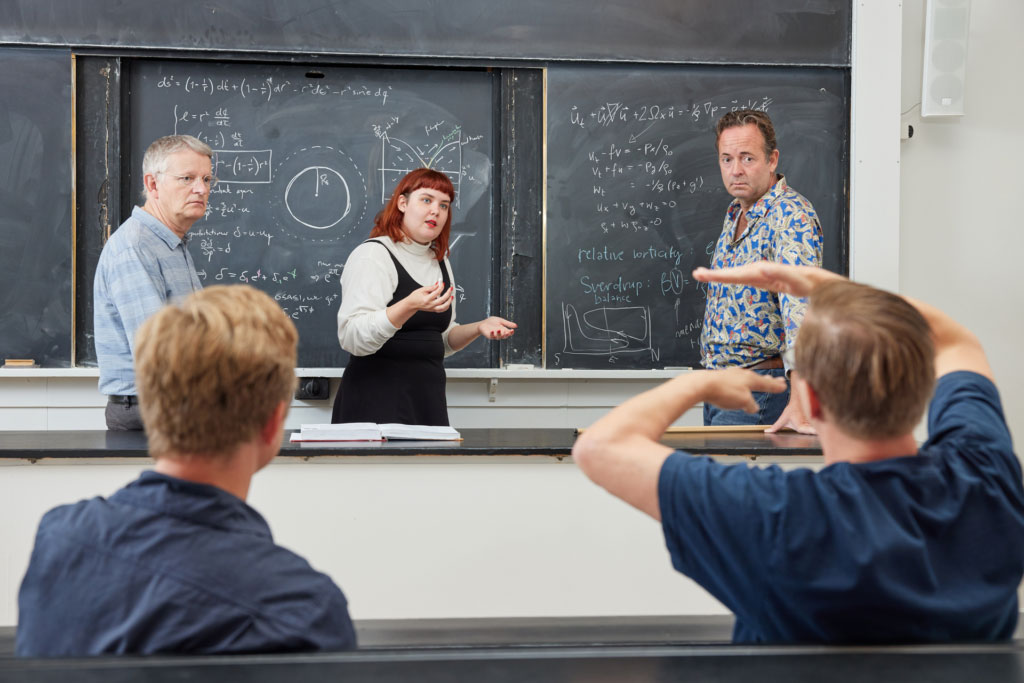
I can bring something to the table
Age matters little as the NBI researchers create digital versions of the physical world. Often it will be the students who are able to teach their experienced professors a trick or two.
Academia has always had a tradition for open exchange of ideas, including between faculty and students. In a field where being born digital is a definite plus it can sometimes even be hard to tell who is teaching whom.
“One thing I did bring to the table was a new approach to testing various hypotheses against each other,” says Dion Häfner, PhD student in the ocean dynamics group at NBI.
The group creates digital twins of oceans (as explained in the Digital Oceans chapter), mimicking currents and other processes of the real oceans.
The computer does the boring work
Digital versions of the ocean can be utilized to obtain new knowledge by manipulating certain factors. What will for instance happen if the temperature increases or if a given current is weakened?
“The thing is, when we do this type of experiments and observe some results, different people will have different stories on what is going on in our complex climate system. Previously, people would just agree to disagree, but I don’t think we should settle for that. That’s why I am developing machine learning-based tools to test different hypotheses against each other in a principled, quantitative manner. This was a new approach to the group,” explains Dion Häfner.
“Right from the outset I liked the idea that I am able to leave a lot of the boring work to the computer. Just pushing a button and waiting for results to come in is really satisfying. Meanwhile, I can focus on what I find interesting.”
A deep connection with nature
“Running an ocean model can almost feel like playing a computer game,” Dion says with a smile, then adding on a serious note:
“But of course, this is not a game. What we create in our computers reflects what takes place in the outside world every day. As humankind we are only able to spend a limited time on this planet. If we want to expand that time, we really need to understand the world around us.”
Sounds like you are motivated by mitigating climate change?
“In part, yes. Climate change is the most urgent challenge to us right now, but I am not only focused on that. Other changes in the Earth’s climate will come after this one, and we need to understand our planet to handle them. Actually, I would say that the study of nature itself is my main motivation. Also, I am really fascinated by the technical details behind being able to build something as complex as our world inside a computer.”
The computer is not the only way for Dion to study nature, he adds:
“I feel a deep connection with nature – as most natural scientists do. Ironically though, considering that technically I am an oceanographer, I am not much of a boat person. I would probably just get sea-sick.”
“As humankind we are only able to spend a limited time on this planet. If we want to expand that time, we really need to understand the world around us.”
Dion Häfner, PhD student in TeamOcean at NBI.
